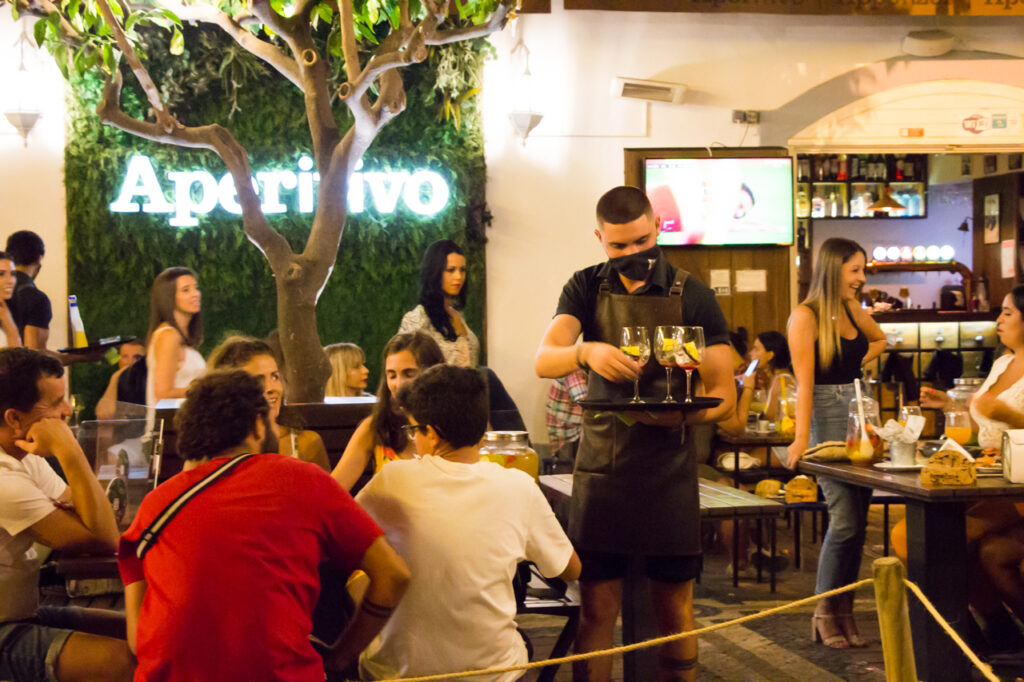The Municipality of Faro approved this Monday, in a meeting of the Chamber of Deputies, the new regulation of the opening hours of commercial establishments and the provision of services in the municipality and the new municipal noise regulation.
The previous regulation of opening hours of establishments came into force in April 2017, having remained unchanged since then, while the current municipal noise regulation came into force in the course of 2012.
The first of these regulations then introduced a set of changes, including the liberalization of opening hours of establishments selling to the public, providing services, restaurants or drinks, establishments with a dance space or where shows are held.
«Considering the evolution of the municipal social reality over the last five years, the Municipality believes that it is important to approve a revision to the regulation that limits the opening hours of these spaces, in order to avoid the exacerbation of a set of discomfort situations, already identified , and help to make commercial use compatible with the other urban uses existing in the Municipal Master Plan, namely housing use», emphasizes the City Council. Faro in a press release.
The municipality adds that "a reflection of this situation is the discomfort felt by the population regarding the noise caused by the operation of establishments, due to music, with high sound, audible from the public road, as well as in the surrounding houses".
Likewise, «the intensification of the frequency of some establishments led to an agglomeration of consumers outside them, a situation that causes excessive noise due to their movement and permanence on public roads».
In addition to being exposed to sources of noise, it can «compromise rest and contribute to degrading the quality of life of residents, crowding on public roads can also increase insecurity situations», the Chamber’s note also emphasizes.
In this sense, for reasons of safety and protection of the quality of life of citizens, the regulation now approved defines that restaurant, beverage or mixed establishments (restaurants, cafes or pastry shops, among others) can operate every day between 06:00 and at 02:00 am the next day.
Drinks and restaurants, duly licensed (bars, concert halls, theaters, cinemas, venues, among others) may operate between 10:00 am and 03:00 am the following day, from Sunday to Thursday, and between 10:00 am and 04:00 am, the following day on Fridays, Saturdays and the eve of public holidays.
Licensed drinking and dining establishments such as dance clubs, discotheques or the like may have opening hours between 10:00 a.m. and 03:00 a.m. the following day, from Sunday to Thursday, and between 10:00 a.m. and 05:00 a.m. the following day on Fridays, Saturdays and holiday eves.
Establishments such as pharmacies, under the terms of applicable legislation, hospitals, medical centers, hospitals or veterinary clinics may operate permanently, every day; tourist developments or local accommodation; residential structures for the elderly; fuel stations, among others.
Establishments located in residential buildings can only operate between 08:00 am and 24:00 am, and may, exceptionally, adopt the schedules set for other establishments, if they obtain the prior consent of the owner of the building, or the declaration of non-opposition by the condominium. , in the case of a building on horizontal property.
On the other hand, the municipal noise regulation aims at the adoption of procedures that allow a better performance in the prevention, inspection and sanctioning of practices that do not comply with the legal framework, always with a perspective of continuous improvement in the performance of municipal services in respect of the principle of legality. and promoting the guarantee of citizens' rights and expectations.
Both regulations will now be submitted to interested parties and public consultation, through publication in the Diário da República, and proposed for approval by the Municipal Assembly.



















Comments